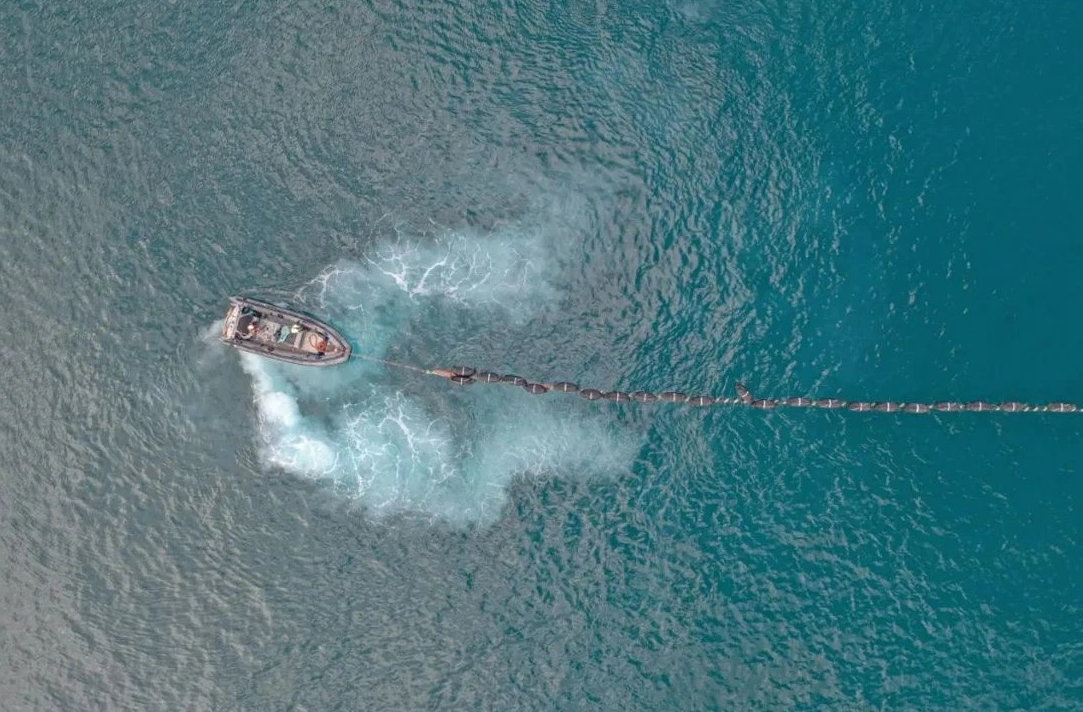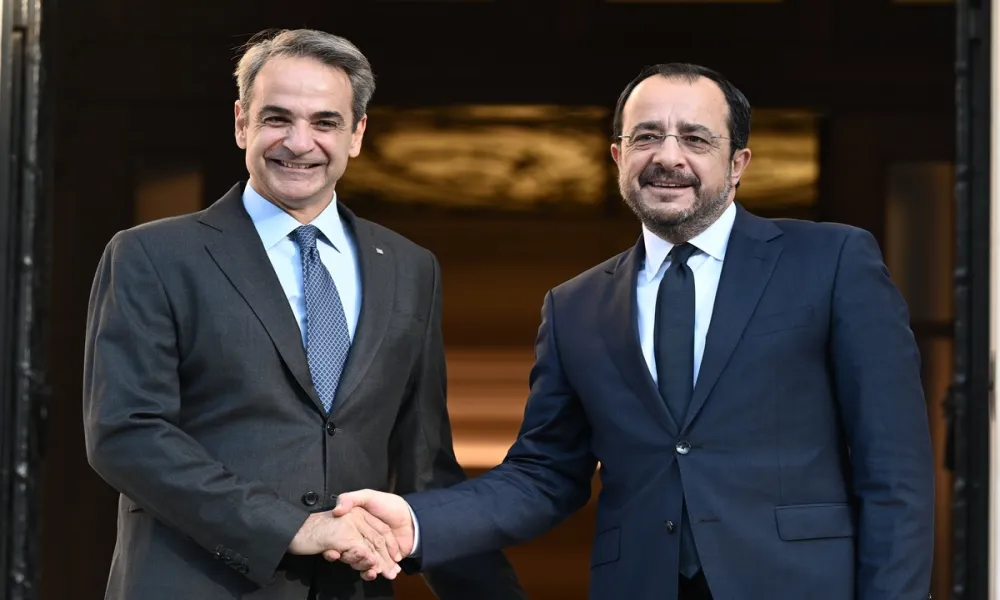A technical dispute over cost recovery for the Greece-Cyprus electricity interconnection erupted into an unusually sharp public clash before both sides moved to dial down the rhetoric. The controversy began Sunday, when President Nikos Christodoulides, reacting to a front-page report in Phileleftheros about an appeal filed by Greece’s transmission operator ADMIE (Independent Power Transmission Operator) against a RAEK (Cyprus Energy Regulatory Authority) decision on recognised investment costs and a €25 million payment, warned: “If the head of ADMIE thinks that with such letters or paid placements he can blackmail the Cypriot government, he clearly doesn’t know who he’s dealing with.”
Athens responded swiftly. ADMIE confirmed it had lodged an appeal but denied seeking more than €25 million annually. An emergency meeting was then convened at the Greek Prime Minister’s office with the energy ministry leadership and ADMIE, no communiqué followed, but the choreography signalled concern over a possible strain in bilateral ties.
On Monday morning, Greece’s Energy Minister Stavros Papastavrou elevated the matter, stressing that ADMIE, 51% owned by the Hellenic Republic, acts as an arm of Greek energy policy. “The Hellenic Republic does not blackmail; it speaks institutionally,” he said, urging Nicosia to clarify its position: for the interconnector to advance, doubts about its viability must be lifted and outstanding technical and financial issues resolved. He argued the project is “by definition” viable given €657 million in EU co-funding, noting both Greece and Cyprus sought that support.
Back in Nicosia, the government moved to lower the temperature. President Christodoulides said Cyprus-Greece relations, and his own rapport with Prime Minister Kyriakos Mitsotakis, are “stronger than ever,” dismissing talk of a rift and pointing to last week’s participation of upgraded Greek F-16 Viper jets in Cyprus’s 1 October parade as proof of close ties. Government spokesperson Constantinos Letymbiotis later framed the disagreement as a regulatory matter, citing ADMIE’s own statement and avoiding any reference to “blackmail.” He reiterated that under the intergovernmental framework, €25 million per year is to be paid in 2025-2029, while any recognised costs above that threshold would be settled after project completion, consistent with standard practice.

ADMIE, for its part, says it is seeking recognition of a €251 million recovery right and acknowledges receipt of €25 million for 2025 as an advance against the project’s regulated revenue. The balance would be recovered over 35 years during commercial operation, in line with regulatory decisions.
What’s next
The episode leaves Nicosia facing a clearer demand: state, unequivocally, whether it stands behind the project’s viability and timeline. Greek government spokesperson Pavlos Marinakis underlined Monday that progress on the link depends on resolving open techno-economic issues and not questioning the project’s viability, while affirming that bilateral relations “are strong and will not be disrupted because of a project.”
Calls for clarity at home
Pressure is also building domestically. DISY leader and House President Annita Demetriou urged the government, on Politis 107.6 & 97.6 radio, to act with transparency and present, institutionally, what has been agreed to date and the next steps. She called the interconnector a project of “major geostrategic significance,” stressing that the unified Greece-Cyprus front is a key diplomatic asset that should not be clouded by mixed messages.
AKEL issued a parallel appeal, accusing the government of “double-speak” on a strategic project for Cyprus and demanding clear answers and a coherent plan, rather than further muddling of the picture.
For now, the rhetoric has cooled. But the substance remains: Cyprus must decide, and state plainly, whether it is fully on board with the interconnector’s financing model, viability assumptions, and regulatory path, or risk letting a flagship regional project drift.
